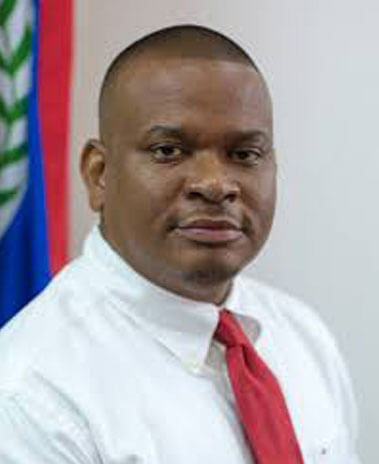BELIZE CITY, Mon. Aug. 24, 2020– At a press conference on Friday, the Minister of Education, Youth and Sports, Hon. Patrick Faber, presented a comprehensive plan for the delivery of coursework and lessons in the upcoming school year.
This plan makes accommodations for the reopening of pre-schools and primary schools (as well as the provision of lessons for students approved for homeschooling) through distance education platforms by the proposed date of September 7, 2020, while classes for secondary schools are proposed to resume on October 5, 2020. Tertiary level institutions, on the other hand, have already been given approval to commence their online sessions.
The school program at the preschool and primary school levels will consist of paper-based learning activities and assignments designed by teachers based on the school curriculums.
Parents are tasked with picking up these items from the school or a designated pick-up point identified by the various schools. Completed assignments and assessments are to be returned to the school or designated drop-off point.
Hon. Faber also stated that during the month of September, educators will focus on assessing where students are academically and will then provide lessons and coursework that will help them reach the expected educational level.
The Ministry will also be providing textbooks and workbooks to students via a free textbook system, which is being put in place to aid parents and guardians in delivering these lessons to their children at home.
At the secondary level, classes will be primarily held online, and the Ministry of Education has made a pledge to distribute digital learning devices to all students who do not have access to the necessary resources.
Faber stated that by the proposed date of October 5, the Ministry is confident it can source about 8,000 devices, to be distributed to students countrywide. Students in need of these devices can make arrangements to receive them through their schools. Students may incur a minimal cost with regards to the acquisition of certain textbooks.
Primary schools are also responsible for the printing of the paper-based learning packages, which will be possible through Government donations of $5.00 per student.
While students are being assessed in the month of September, all secondary school teachers will receive training in online teaching and the use of digital platforms, and will also develop online lessons and learning assignments for the subjects that they teach using a suite of Office 365 software packages. Teachers are expected to report to their respective schools during the month of preparation leading into the school year.
The Ministry is also collaborating with Digi to arrange for 6,000 tertiary level students to be provided with 25GB data packages valued at $70 per package so that they are able to access their online lessons.
These packages will not be limited to 30-day usage periods, but instead, can be rolled over in the event that all the data is not used in that timeframe.
The Minister said that he hopes that this could be rolled out by September and encouraged students to look out for messages via the media on how to access the program when it comes into effect.
There are also a number of entities which have assisted the Ministry in its preparation for face-to-face lessons, although it is uncertain at this time when those will be reintroduced.
Faber thanked the Michael Ashcroft COVID-19 Foundation, which has donated 4,000 armchairs; the Belize Electricity Limited, which has donated 125 hand-washing stations; the Belize Water Services, which has donated 25 hand-washing stations; the Belize Social Security Board, which has donated 248 hand-washing stations; and UNICEF, which has donated 1,200 cleaning and sanitation supply packages.
In addition, the Ministry of Finance, through Prime Minister Dean Barrow, has made BZ$300,000 available, which has been offered as grants to school managements for the purchasing of cleaning and sanitization supplies.

